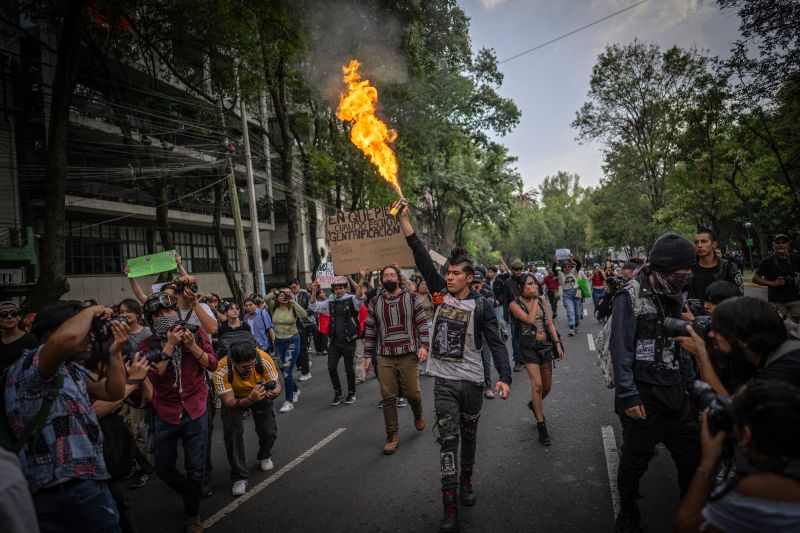
While teaching emissions control policies this last week to my undergraduates, I revisited my signature of the Economists’ Statement on Carbon Dividends (now signed by over 3600 economists). It’s been four years since the origin of the statement, and despite it being the most agreed-upon policy statement in the history of economics, no federal greenhouse gas emissions charge exists today.
At the time (January of 2019), the earth sat at about 1 degree Celsius above long-term average predictions, gaining at about 0.2 degrees Celsius each decade on average. That puts us above the 1.5 degree threshold set by the Paris Agreement in 2015 by around 2050. I’ll be alive for this…
As an aside: when I think about 0.2 degrees in a decade I think about turtles…
“A few degrees make a huge difference. At sand temperatures of 31.1 degrees Celsius (88 degrees Fahrenheit), only female green sea turtles hatch, while at 27.8 degrees Celsius (82 degrees Fahrenheit) and below, only males hatch.” – Buis (2019) “A degree of Concern: Why Global Temperatures Matter”
Back to the point…what initially attracted me to the economists’ statement was its simplicity; the way it seemed to cut through all of the common issues of aggressive climate policy. A carbon tax with a border adjustment and level dividend checks to all US households. Put a bow on it! It avoids all the costly, small-sided, industry-by-industry negotiations of thresholds or a la carte subsidy creation. It’s nearly immune to rent-seeking by lobbyists. In fact, an emissions charge provides the incentive for polluters to do BETTER than these thresholds, avoiding the tax altogether if possible (0 emissions). I was in love.
Then, the Inflation Reduction Act (strange name for a climate bill, but I’ve always enjoyed aligning economic and environmental incentives, so I dig it) dropped in 2022 with no emissions charge. The largest, most coherent climate strategy of all time in the US came to be and the near-entirety* of my profession was ignored! WHAT!?! I’m grateful khakis are coffee-stain colored. How are we to react to this?
My gut was to get pissed at politics. K-street won again… a lot of subsidies in this bill! But, in theory, subsidizing a perfect substitute can serve as an implicit (and equal) tax on the unsubsidized good, ceteris paribus. For example, power generation is a quarter of the GHG emissions problem (EPA). By some estimates, the carbon dividend policy’s emissions reductions would be achieved largely through the power sector (80% of emissions reduced, according to a Columbia University Center on Global Energy Policy report by Kaufman and Gordon, 2018). The Inflation Reduction climate bill provides payments to prevent nuclear decommissions, as well as tax credits for renewable energy generation. According to a blog post by Noah Kaufman just last week, this amounts to a $70/ton implicit emission charge on natural gas and $30/ton charge on coal… not perfect substitutes, but substitutes all the same.
So, perhaps just as the major climate bill is hidden in an inflation bill, our beloved carbon tax is dressed as a subsidy for strong carbon substitutes. If power generators (and perhaps households) do not switch to the cleaner, cheaper inputs, they are taxing themselves. And I do like Paul Krugman’s argument here as well… the carbon tax is good at incentivizing firms to find new ways to reduce emissions (using given tech), but weak in getting firms to discover new technologies to reduce. In his NYT opinion piece, he notes that the massive cost reductions for renewable energy got their big nudge from government aid. That is, of course, in the absence of a carbon tax… we don’t have a world where we observe tech advancements under a carbon tax. But, given the cross-aisle political throwdowns that happen with anything named “tax”, perhaps green energy subsidies (aka implicit dirty-energy taxes) are as good as we can do?
There’s more to pick at in the IRA. For the reasons I disliked clunky, source-by-source regulation, this bill seems to have a lot more transaction costs than a carbon tax would cause. But, I haven’t well-combed the CBOs estimates enough to see if administrative burdens are considered a cost. Additionally, I supported lump-sum revenue distribution for environmental justice concerns. While it appears the IRA’s subsidies to lower energy costs (and incentivize heat pumps and the like) target the vulnerable, there’s more to study about the distributional impacts of to the tax part of the bill… which, to be fair, is a focus of the bill… for another post.
*yes, 3600 = ALL of us








